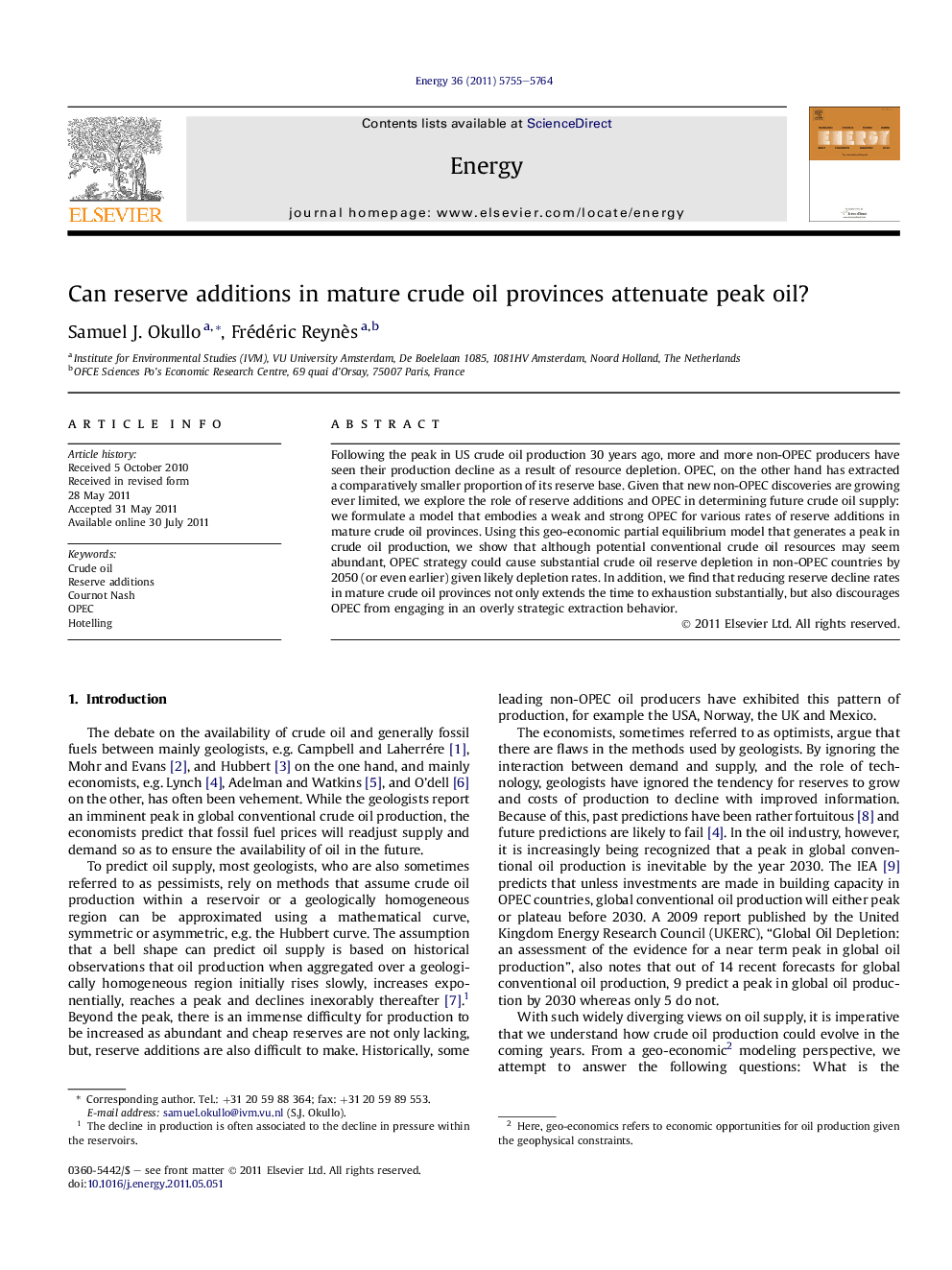| Article ID | Journal | Published Year | Pages | File Type |
|---|---|---|---|---|
| 1734597 | Energy | 2011 | 10 Pages |
Following the peak in US crude oil production 30 years ago, more and more non-OPEC producers have seen their production decline as a result of resource depletion. OPEC, on the other hand has extracted a comparatively smaller proportion of its reserve base. Given that new non-OPEC discoveries are growing ever limited, we explore the role of reserve additions and OPEC in determining future crude oil supply: we formulate a model that embodies a weak and strong OPEC for various rates of reserve additions in mature crude oil provinces. Using this geo-economic partial equilibrium model that generates a peak in crude oil production, we show that although potential conventional crude oil resources may seem abundant, OPEC strategy could cause substantial crude oil reserve depletion in non-OPEC countries by 2050 (or even earlier) given likely depletion rates. In addition, we find that reducing reserve decline rates in mature crude oil provinces not only extends the time to exhaustion substantially, but also discourages OPEC from engaging in an overly strategic extraction behavior.
► Market power and reserve additions as determinants of crude oil supply. ► Substantial reserve additions are required in non-OPEC in order to attenuate a near term global peak oil. ► Non-OPEC reserve growth could induce OPEC to increase production.
